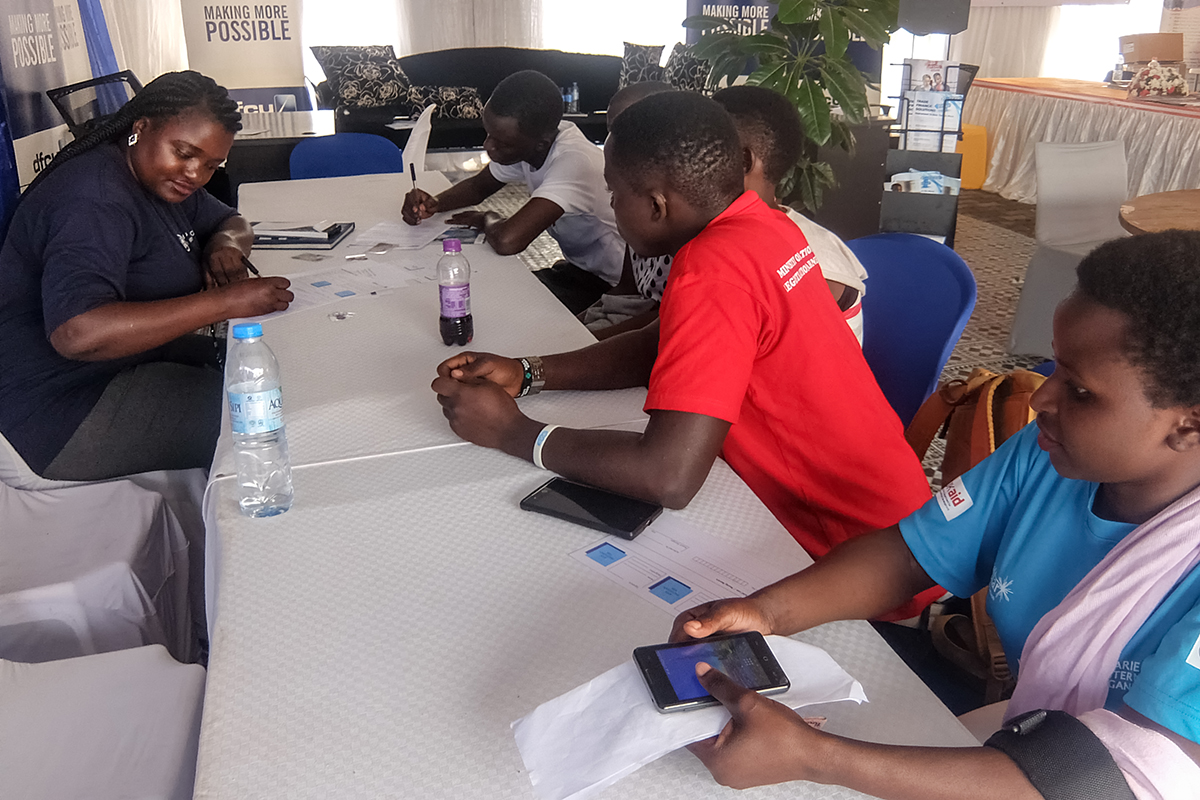
Edna Namara, GPJ Uganda
Clients consult bankers with increasing frequency about savings options. They say they are tired of losing money to fraud, corruption and bad investments.
KAMPALA, UGANDA — Frank Baine bears the heat of the midday sun on his way to the Bank of Uganda.
The 53-year-old decided to bring his money here, a formal bank, after losing his life savings of 40 million Ugandan shillings ($10,742) when he hired his cousin to run his informal beverage store in a Kampala suburb.
Labor costs, high rent and a dispute with his landlord cost him his business.
“In addition to the loss of the entire capital, I had to part with 4 million shillings ($1,074) more to settle with the landlady,” Baine says.
So now, he’s doing the unthinkable. He’s putting what’s left of his money in a bank to prepare for retirement.
Across Kampala, many small-business owners are doing the same. Banks are now offering a new solution to “low-risk” Ugandans, who are tired of corruption or risking their savings in the informal small-business sector.
A fixed-deposit account allows clients to keep their money safe while earning interest for a while, says Alex Baguma, relationship manager at the Housing Finance Bank. These low-risk investment accounts keep money for a stated period of time and a fixed interest rate is paid at the end of that period.
“Our offer goes from three months to six months and to a year. This system of banking is so effective for non-risk takers,” Baguma says.



At Standard Chartered Bank Uganda, a similar account is advertised with the slogan, “Maximize the growth potential of your savings without taking any risks.”
The rise in low-risk banking solutions, which also include savings bonds, come as Ugandans tire of the losses associated with corruption in daily life and small business, says Ben Wakwale, process server at the anti-corruption court in the Kololo area of Kampala, Uganda’s capital, where corruption is common.
Wakwale says that 158 and 117 cases of small-business fraud were filed in anti-corruption court in Kololo in 2016 and 2017, respectively. But those numbers don’t fully represent the problems of average Ugandans.
“There could be more cases that are unreported, because many Ugandans are betrayed by relatives and friends whom they cannot take to court,” he says.
When Japhet Kiberu worked in Oman for four years, he regularly sent his brother money to help build a nice home for his return. But when he came back to Uganda, he couldn’t reach his brother.
“I thought it was a technical problem,” Kiberu says. “I learned the hard truth when our mother got the shock of her life when I asked her about the house that my brother had been constructing for me.”
He says his mother informed him that there was no house. His brother had vanished. From this experience, Kiberu says he learned to never give large sums of money to family or make informal investments.
Joan Akubu agrees. After losing 3 million shillings ($805) in a business venture with a friend, she says she is content to just earn interest in a bank account.
“I keep my money there, and it gives me peace of mind,” she says. “I do not give fraud a chance.”
Formal banking opportunities are still new here, says Steven Kaijuka, senior principal officer at the Bank of Uganda.
“Many people are still skeptical about keeping their money [in a bank] for long. But we shall keep sensitizing them on the advantages of saving for the future,” Kaijuka says.
It’s already working, says Roselyn Kohairwe, financial markets officer at the Bank of Uganda. A growing number of customers are opening both savings bonds too, she says.
“The bonds are a saving mechanism for the future,” Kohairwe says. “One’s children cannot suffer, even when their parents have died. The money stays in the system and keeps generating more money.”







